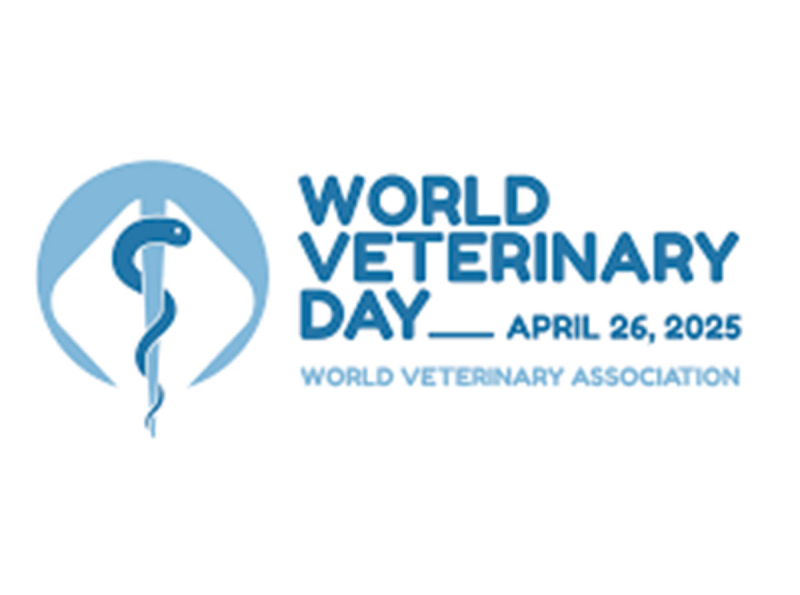Veterinarians play an essential role in Sri Lanka’s agricultural and healthcare systems, contributing not only to the welfare of animals but also to public health and food security. As the world prepares to celebrate World Veterinary Day on April 26, 2025, under the theme "Animal Health Takes a Team," it is an opportune moment to recognize the collaborative efforts of veterinary professionals in Sri Lanka and their critical contributions to animal health, public health, animal welfare and food security.
The Role of Veterinarians in Sri Lanka
From ensuring the health of livestock and poultry to managing zoonotic diseases and promoting animal welfare, veterinarians in Sri Lanka undertake a wide range of responsibilities. Their work extends beyond traditional animal care, impacting the economy, public health, and the environment. With more than 1,000 registered veterinarians in the country, their expertise is indispensable in both urban and rural areas.
Safeguarding Livestock and Poultry
Sri Lanka's economy heavily relies on livestock, dairy, and poultry farming, which serve as vital sources of income and nutrition for thousands of families. The livestock sector contributes approximately 1.2% to the national GDP, with poultry production alone accounting for 60% of total livestock output. Veterinarians play a key role in preventing and treating diseases in animals, ensuring that food production remains safe and sustainable. Their expertise in disease control, vaccination programs, and nutrition management helps maintain the health of the nation’s livestock industry.
Veterinary professionals conduct regular health screenings, implement biosecurity measures, and advise farmers on best practices for disease prevention. Programs conducted by veterinarians reduced disease outbreaks and improve overall livestock productivity.
Protecting Public Health
With nearly 75% of emerging infectious diseases being zoonotic (transmissible from animals to humans), veterinary professionals are frontline defenders in disease prevention. Their work in surveillance and control of diseases such as rabies, avian influenza, leptospirosis, and brucellosis is crucial in safeguarding human health. Sri Lanka has made significant progress in its National Rabies Control Program, aiming to make the country rabies-free by 2030 through mass vaccinations and awareness campaigns.
Veterinarians also contribute to One Health initiatives, which integrate human, animal, and environmental health strategies to prevent and control disease transmission. Collaborating with medical professionals, veterinarians play a crucial role in minimizing public health threats, including antimicrobial resistance (AMR) caused by overuse of antibiotics in livestock farming.
Ensuring Food Safety and Security
Veterinarians are responsible for ensuring that animal-derived food products such as milk, eggs, and meat, meet stringent health and safety standards. By monitoring farms, processing facilities, and marketplaces, they help prevent to foodborne illnesses and maintain consumer confidence in locally produced food.
With over 2000 million eggs and 230 million metric tons of chicken meat produced annually, veterinarians ensure that these products are free from contaminants and safe for consumption. Strict quality control measures and disease prevention strategies help to maintain Sri Lanka’s demand sufficiency in poultry products.
Promoting Animal Welfare
Beyond commercial farming, veterinarians advocate for the ethical treatment of animals, providing medical care to pets, working animals, and wildlife. Their efforts in animal rescue, rehabilitation, and conservation programs are invaluable in preserving Sri Lanka’s rich biodiversity. and veterinarians working in wildlife department protect endangered species and provide medical treatment to injured wildlife.
Additionally, veterinarians work closely with non-governmental organizations (NGOs) and community groups to address issues such as stray animal population control, responsible pet ownership, and animal cruelty prevention.
The Role of the Sri Lanka Veterinary Association (SLVA)
The Sri Lanka Veterinary Association (SLVA) serves as the leading professional body for veterinarians in the country, advocating for the advancement of veterinary medicine . Since its establishment, the SLVA has played a crucial role in shaping veterinary education, research, and policy development.
Key contributions of the SLVA include:
- Continuing Professional Development (CPD): Organizing seminars, workshops, and training programs to enhance the skills and knowledge of veterinarians.
- Policy Advocacy: Collaborating with government agencies to develop policies on animal health, food safety, and disease control.
- Public Awareness Campaigns: Conducting educational programs to promote responsible pet ownership, livestock management, and zoonotic disease prevention.
- Supporting Veterinary Research: Facilitating research projects on emerging animal diseases, sustainable livestock practices, and veterinary medicine advancements.
Through these initiatives, the Sri Lanka Veterinary Association (SLVA) continues to uphold the standards of veterinary practice while ensuring the well-being of animals and the communities that depend on them.
Challenges Faced by Veterinary Professionals
Despite their significant contributions, veterinarians in Sri Lanka face numerous challenges:
- Limited Resources: Many Government veterinary offices, especially in rural areas, lack modern diagnostic tools and medical supplies.
- Insufficient Veterinary Infrastructure: A shortage of specialized veterinary hospitals and research facilities hampers the advancement of the field.
- Low Public Awareness: Many farmers and pet owners lack knowledge about preventive healthcare for animals, leading to delayed treatments and disease outbreaks.
- Emerging Threats: Climate change, increasing zoonotic diseases, and antibiotic resistance pose new challenges for veterinary professionals.
Recognizing and Supporting Veterinarians
As we celebrate World Veterinary Day, it is essential to acknowledge and support the veterinary community by:
- Enhancing Veterinary Education and Research: Establishing more veterinary colleges and research facilities to improve training and specialization.
- Strengthening Disease Surveillance and Control Programs: Expanding vaccination campaigns and biosecurity measures to prevent the spread of infectious diseases.
- Increasing Government Investment in Animal Healthcare: Allocating more resources to veterinary services, research programs, and disease control initiatives.
- Promoting Awareness about Responsible Pet Ownership and Livestock Management: Educating farmers and pet owners on disease prevention, nutrition, and ethical treatment of animals.
Veterinarians are the backbone of Sri Lanka’s animal health sector, ensuring the well-being of animals, the safety of food, and the protection of public health. Their expertise and dedication significantly contribute to the country’s economic growth and social well-being. While celebrating the World Veterinary Day, let us express our gratitude and commitment to strengthening veterinary services in Sri Lanka. By doing so, we not only honor their work but also contribute to a healthier, safer future for both animals and humans.



